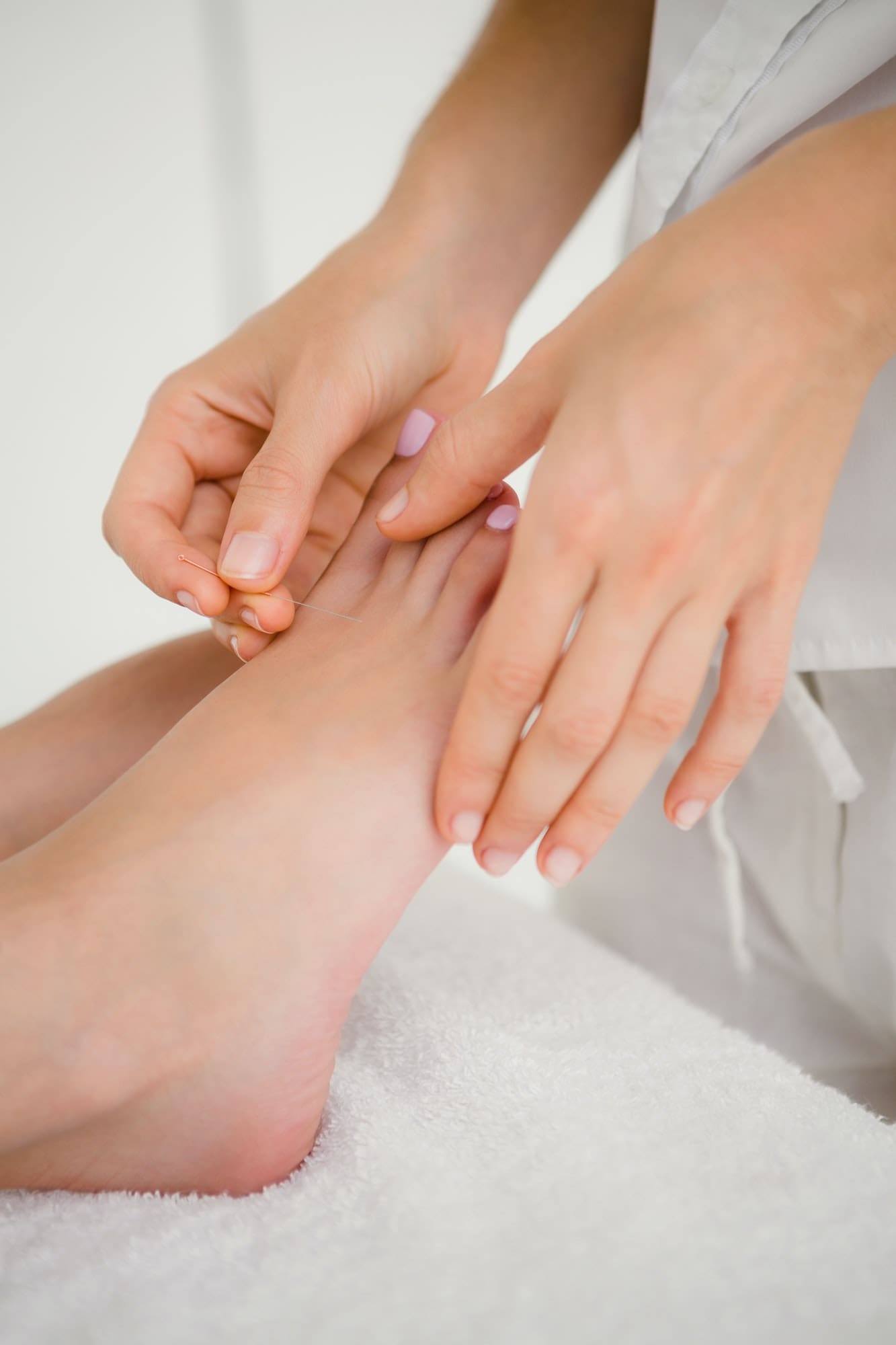Treating Peripheral Neuropathy with Acupuncture
The nervous system is a complex network that allows communication to occur between the spine and the brain. If there is an issue in connecting, or if the messages are not properly communicated, this can cause sensations to occur in the extremities. Some people experience this as tingling, numbness, or spasms, while others may experience weakness or atrophy. This experience is broadly called neuropathy, and when it occurs in the extremities like arms, hands, legs, and feet, it is specifically known as peripheral neuropathy. Neuropathy destroys nerves and the root cause of neuropathy is a lack of blood flow to the nerves.
Understanding Nerve Pain
Today, over 20 million people in the United States suffer from some type of peripheral neuropathy. Though the majority of people suffer from peripheral neuropathy as a result of uncontrolled diabetes, there are many other causes. Some causes of neuropathy include traumatic injuries, infections, chemo-induced neuropathy, nutritional or vitamin deficiencies, and at times, alcoholic dependency. Nerve damage or peripheral neuropathy can be caused by a variety of reasons and can be impacted by several factors. Functional medicine works to understand the issue across various systems of the body. Chinese Medicine strives to understand the root cause of the issue to alleviate not only the symptoms but their cause as well.
Depending on the cause, there may be a differing approach for each individual to work towards alleviating symptoms. Many people with peripheral neuropathy take medications that can help alleviate their pain. While this can be beneficial in terms of care for the current situation, it fails to address the root cause or core issue. This means, when the medicine wears off, the pain is still there as strong as ever. Integrative practitioners strive to create a system of care that can not only reduce pain systems as soon as possible but can also help to alleviate or eliminate these symptoms over time.
Peripheral Neuropathy and Chinese Medicine
Acupuncture is a unique modality that is based on Traditional Chinese Medicine theory. It is also one of the most common alternative methods proven to be useful for treating different types of nerve pain. Acupuncture works with the nervous system to release endorphins that can reduce pain levels. It involves stimulating specific points that have been used for thousands of years to improve health and resolve adversities. Participating in regular acupuncture treatments, as advised by a licensed acupuncturist can create change over time in how peripheral neuropathy pain is experienced. The acupuncture treatments stimulate blood flow to the nerves and may even reverse some symptoms, especially if treated early on.
Moxibustion is an herb that is useful for reducing pain severity and decreasing the feeling of “pins and needles” and numbness that comes as a consequence of peripheral neuropathy. The warmth and properties of moxibustion are used to stimulate various acupuncture points and stimulate blood flow to the affected areas.
In addition to acupuncture, lifestyle adjustments may also be recommended to bring about the best outcome. For people with diabetes-related neuropathy, managing blood sugar will be the main factor in bringing about healing. This may also include dietary suggestions like getting enough protein, exercising, and participating in strength training and other intense exercises. Sleep and stress management may also play an important role in recovery. As always, eating whole food and a diverse diet can help with healing.
Neuropathy and B12 Deficiency
Another cause that has been attributed to peripheral neuropathy is vitamin B12 deficiency. A B12 deficiency can be caused by a few diseases. People who have pernicious anemia, anemia of the parietal cells in the stomach, may be prone to B12 deficiency. Another disease, SIBO (Small Intestine Bacterial Overgrowth) can inhibit the absorption of B vitamins and may lead to B12 deficiency, thereby leading to neuropathy. Additionally, a glutathione deficiency could lead to a B12 deficiency and neuropathy. Glutathione is depleted by oxidative stress, which can come from not sleeping, high-stress levels, or lack of exercise. People with autoimmune conditions also tend to be low in glutathione, so it is important to monitor these levels over time. It has also been found that vegans and vegetarians are often deficient in B12 as well, so eating a complex diet or supplementing may be the best approach to ensure adequate levels.
Supplementing with B12 is often done with a sublingual lozenge or injection. This depends on the individual and their needs at the moment. For some people, the self-administered lozenges with be sufficient, but for others who have a chronic deficiency, the injection may be a more direct and faster route to recovery. In addition to B12 supplementation, it can be good to also supplement with folate and vitamin B6. To support glutathione production, vitamins A, E, C, D, CoQ10, and selenium are great additions. To combat oxidative stress, NAC and ALA can be added to the protocol. It is also possible to supplement directly with glutathione. These are just a few options for treating neuropathy with functional medicine.
Other tips for treating peripheral neuropathy include:
- Exercise: Getting regular exercise can reduce pain levels and can encourage overall health. Exercising may reduce blood sugar levels, which could reduce nerve pain. Exercising also brings blood to the extremities. This increased circulation could alleviate pain.
- Meditation: Participating in meditation could lower stress levels and improve the outlook. People who meditate may feel empowered to manage their physical conditions. Meditation provides space to see oneself fairly and compassionately, which can help with healing.
- Essential Oils: Some people find relief from using essential oils to calm their minds and bodies. Essential oil concentrates are mixed with some coconut or olive oil and applied to the area of pain. This can reduce pain and other sensations in the affected area.
- Stop Smoking: Smoking cigarettes takes essential oxygen from the body and inhibits blood circulation. Decreasing blood circulation can cause more pain or numbness to occur.
- Cayenne Pepper: Cayenne pepper contains a unique compound called Capsaicin, which has pain-relieving qualities. This can be added to the diet or can be supplemented or used topically.
Treating peripheral neuropathy as early as possible is the best way to create long-lasting change. The longer an issue goes untreated, the harder it can be to treat it. Working with a functional and Chinese medicine practitioner allows for a comprehensive treatment approach that can moderate and alleviate symptoms of peripheral neuropathy while focusing on long-term healing.
Schedule your complimentary 15-minute consultation today to learn more about our unique approach to treating your pain.











